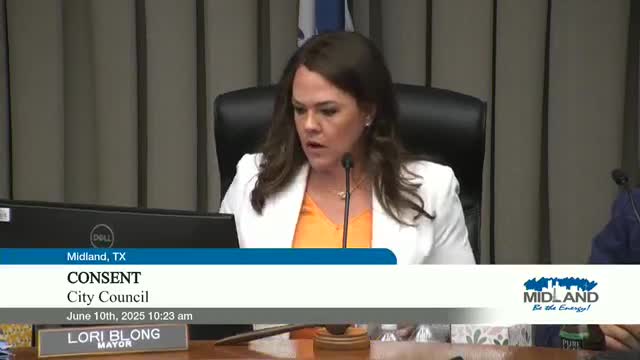Article not found
This article is no longer available. But don't worry—we've gathered other articles that discuss the same topic.
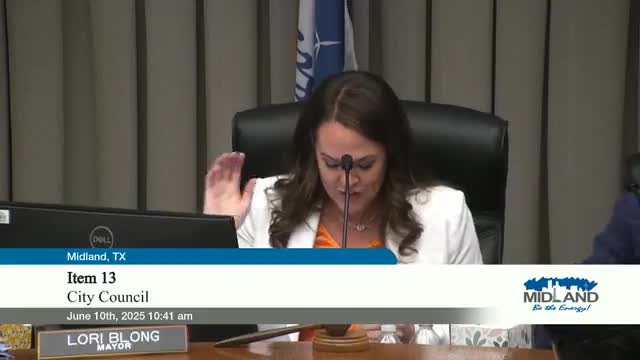
Council approves two specific‑use alcohol designations on West Wall Street with amended security and review conditions
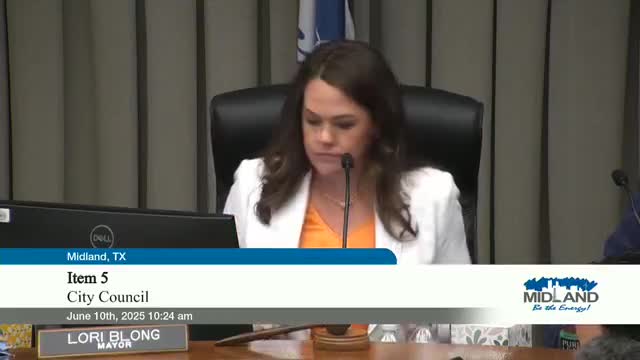
Council approves restroom purchase for Dunigan Park and adds purchasing cooperative; project funded with CDBG
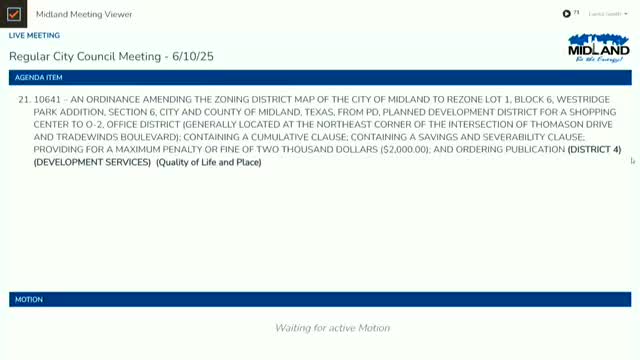
Council approves new ambulance debt‑collection contract; city anticipates lower fees and higher recovery
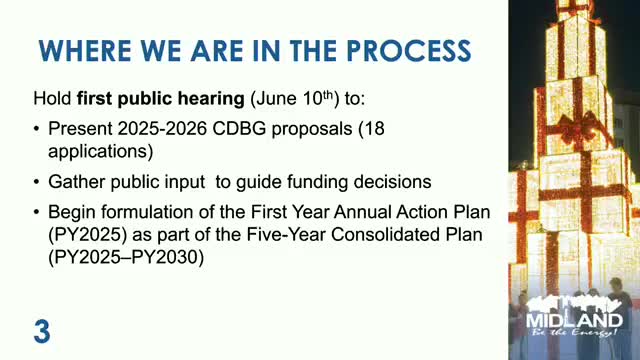
City holds public hearing on 2025–26 Community Development Block Grant applicants; requests exceed available funding
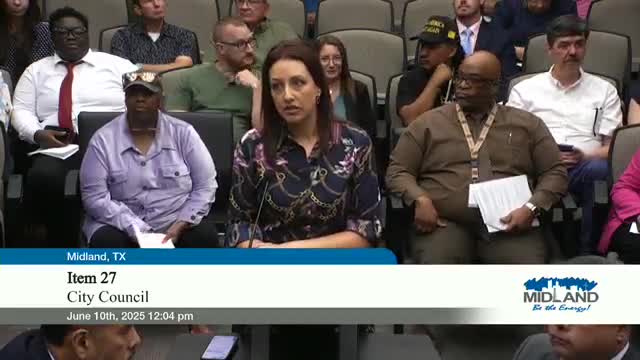
City Council backs plan to extend water across Loop 250 to serve northeast Midland and nearby neighborhoods
